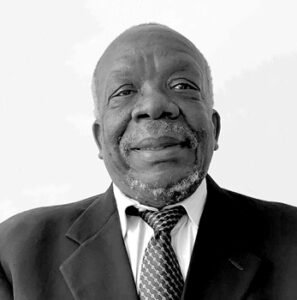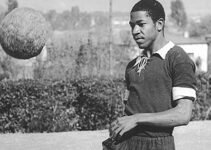February 12th marks a significant moment in South Africa’s diverse history. It is a country that has undergone significant political, social, and economic changes throughout the years. This date holds particular significance, as it marks some fascinating historical events in the country’s past. South Africa’s story is an intricate tapestry worth exploring, from political milestones to cultural achievements. So, let’s turn the pages back and delve into some of the remarkable events that have taken place on February 12th in South Africa’s history.

2006: Leaders at a summit in South Africa pledged to push for a new global trade deal to help poor countries
On February 12 2006, the Progressive Governance Network, a group of center politicians, academics, and leaders, held a two-day summit in South Africa to discuss ways to make global trade more equitable for poor nations. The meeting was the seventh by the organization and was attended by notable figures such as Thabo Mbeki, Tony Blair, and Luiz Inacio Lula da Silva. The group aims to promote a modern progressive agenda based on collective societal development experiences and explore issues surrounding globalization.
1982: Thami Mazwai, former journalist and anti-apartheid activist, is jailed for two years
Journalist Thami Mazwai was jailed for two years in 1982 for refusing to present facts against a former student leader charged under the Terrorism Act. He worked for Sowetan at the time. The student leaders were charged with offences relating to their activities in the 1970s. Mazwai was one of the journalists Steve Biko would have talked to. Mazwai and Joe Tlholoe, his colleagues at Sowetan, were members of the PAC in the 1950s before the organization was banned. They were sharply critical of apartheid. Mazwai is now a successful businessman and publisher, born on October 3, 1944, in Johannesburg.
1979: State Security Council Approves Cross
The State Security Council (SSC) approves guidelines for the conducting of military operations against liberation movements in foreign countries. The Departments of Foreign Affairs, Defence and Police draw up the memorandum, which contains provision for: Planned operations, Cross-border raids (“hot pursuit”), Reconnaissance actions; and clandestine operations. With respect to reconnaissance and clandestine operations, the document admits that such actions would be difficult to justify in terms of international law.
1965: Public places of recreation for whites only are proclaimed
The Group Areas Act of 1950 allowed for racially segregated zones in urban areas. Public places and events in white areas were proclaimed, prohibiting blacks from entering. The act made it a criminal offence for a member of one racial group to reside on or own land in an area set aside for another race. This laid the basis for long-range land allocation planning and interfered with property rights.
1946: South African Indian Congress opposes “Ghetto Act”
The South African Indian Congress (SAIC) held a five-day conference in Cape Town in 1946, where they opposed the proposed Asiatic Land Tenure and Indian Representation Act (No. 28 of 1946), which deprived Asian South Africans of communal representation and land ownership rights. A large deputation of sixty Indians urged the prime minister to postpone the legislation, but the SAIC prepared for prolonged resistance, which started in June and continued for several months. India broke off trade relations and recalled its representative, while also requesting the United Nations to put South Africa’s treatment of the Indian population on the General Assembly’s agenda.
1930: Sculptor Tavhana is born in Dzanani
South African carver and sculptor Tshikudo Paul Tavhana (also Thavhana), was born in Dzanani, Venda (now Limpopo Province).
1880: Ermelo is founded
Ermelo, the educational, industrial and commercial centre of a 7,750m² district in Mpumalanga Province of South Africa was founded by the Reverend Frans Lion Cachet of the Dutch Reformed Church, who was converted to Christianity in the town of Ermelo in the Netherlands. The town was reduced to a single standing house by the British during the Anglo-Boer War 2. Ermelo is the crossroads of three national highways, N2, N11 and the N17.
1862: Founder of the Premier diamond company, Sir Thomas Cullinan, is born
Sir Thomas Cullinan was born in the The Cape Colony in 1862. He settled in Barberton, before moving to Johannesburg in 1887. He began working as a bricklayer in Johannesburg, a job he later left for prospecting. He discovered the Premier Diamond Fields in 1898 and was co-founder and member of what became the The Transvaal Chamber of Industries. He was knighted in 1910 in recognition of his contribution to the Diamond industry and has a town and the biggest diamond ever found named after him. He married Annie Francis Harding in 1886. He died in 1936.


